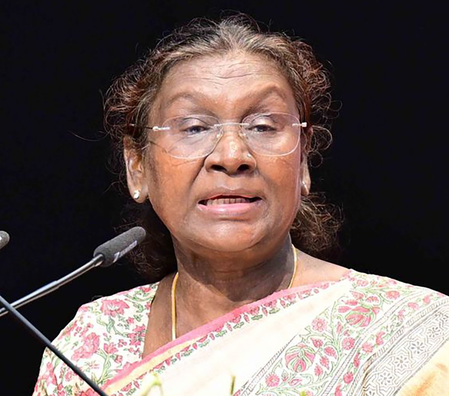
New Delhi, Dec 2 (IANS) While the Joint Parliamentary Committee (JPC) on the Waqf (Amendment) Bill brainstorms over the proposed reforms in the contentious legislation, Chairman Jagdambika Pal on Monday took the Mamata dispensation to task for ‘disregarding and deriding’ the Parliamentary democracy.
The JPC chairman, furious over the Mamata government’s resolution against the Centre’s Waqf (Amendment) bill, told IANS that this was a highly objectionable move and amounted to belittling the authority of the biggest temple of democracy.
“TMC government is bringing resolution only to send a message to the Muslim community that it stands with them. This is nothing but minority appeasement,” he told IANS.
“When JPC is debating the Waqf bill, the Mamata government is bringing a resolution against it. What does it want to achieve with this? Do they have no respect for Parliamentary democracy?” he asked.
Notably, the Mamata-led Trinamool Congress is set to move a motion in the West Bengal Assembly opposing the Waqf (Amendment) Bill. Chief Minister Mamata Banerjee is also expected to share her views on the bill, which is currently under consideration by the Joint Parliamentary Committee (JPC). This has already set the stage for a heated exchange between TMC and Bengal BJP.
The JPC chairman also lashed out at Kalyan Banerjee, a TMC lawmaker and an Opposition member in the Parliamentary panel for his ‘provocative’ and communally charged remarks.
“Kalyan Banerjee says that wherever the Muslim community offers prayers, that land will become the property of the Waqf Board. He must give suggestions in JPC meetings rather than loudmouthing in public,” said Jagdambika Pal in a stern message to the TMC lawmaker.
Meanwhile, the JPC has asked the state governments to furnish details of properties that have been claimed by the Waqf Board, using Section 40 of the Act. Notably, Section 40 of the Waqf Act, one of the most contentious provisions, purportedly gives them the power to decide whether any property belongs to them or not.
Speaking on the issue, Pal said, “We have asked the state governments to share details. If needed, we will summon the chief secretary or minority department secretary of the respective states.”
–IANS
mr/dpb




